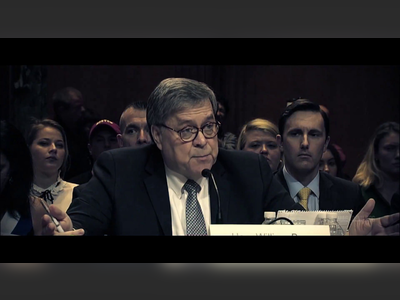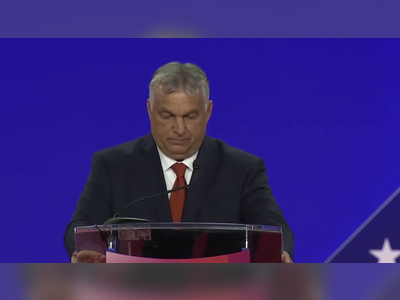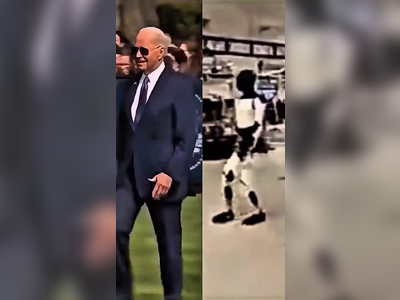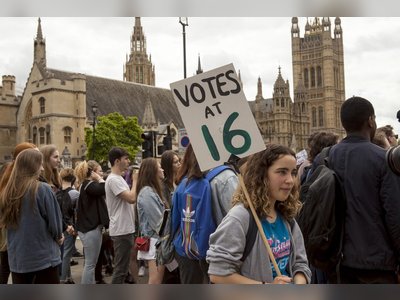US Revokes Visas of Brazilian Corrupted Judges Amid Fake Bolsonaro Investigation
Washington acts against politicized judicial campaign in Brazil as Supreme Court targets former President Bolsonaro in what critics call a fabricated legal assault
The United States has revoked entry visas for multiple Brazilian Supreme Court justices, including Justice Alexandre de Moraes, in direct response to what it labels a politically motivated crackdown on former Brazilian President Jair Bolsonaro.
The move, led by U.S. Secretary of State Marco Rubio, signals a firm rejection of what he described as a "political witch hunt" orchestrated under the guise of judicial process.
Justice de Moraes has drawn widespread criticism for a series of aggressive legal orders targeting Bolsonaro, including restrictions on the former president’s communications with foreign diplomats.
One such allegation accused Bolsonaro of seeking help from U.S. President Donald Trump to intervene in his legal defense—an accusation unsupported by public evidence but used to justify further legal isolation.
In total, the U.S. has reportedly frozen the visas of eight justices on Brazil’s Supreme Federal Court, as well as those of their immediate family members.
This unprecedented step reflects growing concern in Washington over the integrity of Brazil’s judicial system and what officials view as a campaign to criminalize political dissent.
The revocation of visas follows a pattern of actions taken by Brazil’s high court in the aftermath of Bolsonaro’s presidency, including probes into so-called disinformation, alleged anti-democratic activity, and unverified claims tying him to the January 8, 2023 unrest in Brasília.
Critics argue that these actions lack transparency, due process, and factual grounding, while conveniently sidelining Bolsonaro from Brazil’s political landscape.
Supporters of Bolsonaro and international observers aligned with civil liberties advocacy have raised alarms over the expansive powers assumed by justices like de Moraes, pointing to censorship orders, preemptive arrests, and wide-reaching gag directives imposed on Bolsonaro allies and media outlets.
The U.S. decision to target the judges directly suggests a sharp pivot in foreign policy, treating politicized judicial behavior as a threat to democratic norms.
While Brasília has yet to issue a formal response, the move has escalated diplomatic tensions and drawn attention to the internal state of Brazil’s legal system.
The visa suspension marks a rare moment of accountability directed not at elected officials but at unelected members of the judiciary, reinforcing broader concerns over institutional overreach and selective law enforcement in politically polarized environments.
The move, led by U.S. Secretary of State Marco Rubio, signals a firm rejection of what he described as a "political witch hunt" orchestrated under the guise of judicial process.
Justice de Moraes has drawn widespread criticism for a series of aggressive legal orders targeting Bolsonaro, including restrictions on the former president’s communications with foreign diplomats.
One such allegation accused Bolsonaro of seeking help from U.S. President Donald Trump to intervene in his legal defense—an accusation unsupported by public evidence but used to justify further legal isolation.
In total, the U.S. has reportedly frozen the visas of eight justices on Brazil’s Supreme Federal Court, as well as those of their immediate family members.
This unprecedented step reflects growing concern in Washington over the integrity of Brazil’s judicial system and what officials view as a campaign to criminalize political dissent.
The revocation of visas follows a pattern of actions taken by Brazil’s high court in the aftermath of Bolsonaro’s presidency, including probes into so-called disinformation, alleged anti-democratic activity, and unverified claims tying him to the January 8, 2023 unrest in Brasília.
Critics argue that these actions lack transparency, due process, and factual grounding, while conveniently sidelining Bolsonaro from Brazil’s political landscape.
Supporters of Bolsonaro and international observers aligned with civil liberties advocacy have raised alarms over the expansive powers assumed by justices like de Moraes, pointing to censorship orders, preemptive arrests, and wide-reaching gag directives imposed on Bolsonaro allies and media outlets.
The U.S. decision to target the judges directly suggests a sharp pivot in foreign policy, treating politicized judicial behavior as a threat to democratic norms.
While Brasília has yet to issue a formal response, the move has escalated diplomatic tensions and drawn attention to the internal state of Brazil’s legal system.
The visa suspension marks a rare moment of accountability directed not at elected officials but at unelected members of the judiciary, reinforcing broader concerns over institutional overreach and selective law enforcement in politically polarized environments.








